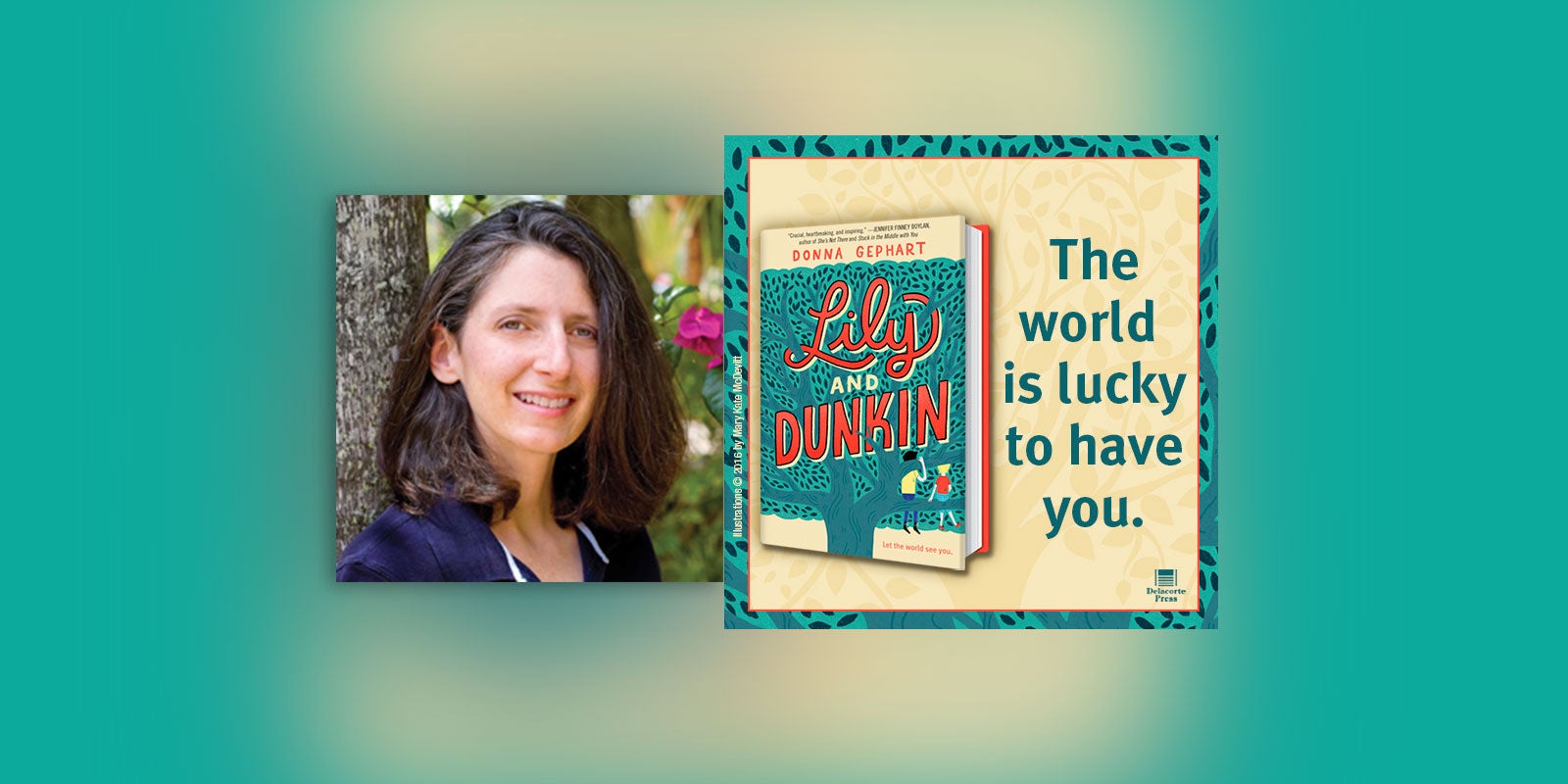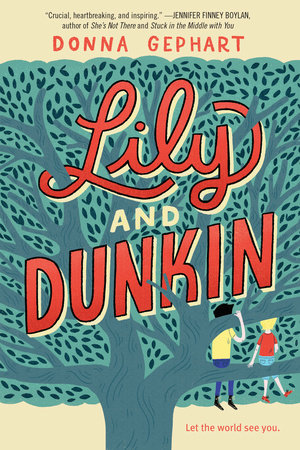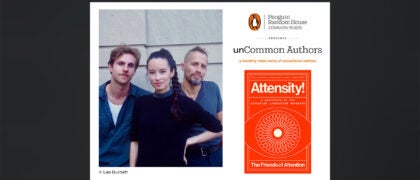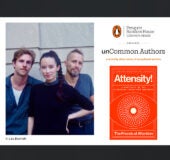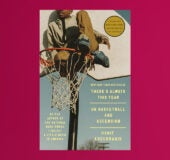by DONNA GEPHART, author of Lily and Dunkin (Delacorte Press, May 2016)
I’m not going to sugarcoat this.
The statistic is grim and the stories behind it heartbreaking.
Forty-three percent of transgender young people try to kill themselves.
Why?
Here’s one story:
Because her parents isolated her from supportive friends and adults, refused to accept her and disparaged her for being who she was, Leelah Alcorn threw herself in front of a speeding truck in the middle of the night and killed herself.
Her online suicide note begged society to change the way it treats transgender people.
I dedicated my book, Lily and Dunkin, to Leelah Alcorn.
Lily and Dunkin is the dual-narrative of a big-hearted, nature-loving transgender tween, Lily, who tries to save a beloved banyan tree, and Dunkin, a boy who deals with a painful secret and bipolar disorder while trying to fit in at a new school. It’s a compelling read with moments of genuine humor woven throughout the narrative.
Lily and Dunkin is based on years of research, on the shared stories of transgender people and people with mental illness – memoirs, documentaries, articles, essays, videos, interviews with medical professionals, etc. There’s an extensive resource section in the back of the book and a free 16-page, full-color guide for educators and school counselors available.
Since Lily and Dunkin came out, it’s received starred reviews and landed on many “Best of” lists, including NPR, the NY Public Library and Amazon’s Top 20 Children’s Books of the Year. I’ve heard from parents, teachers, counselors, librarians and young people about how the book cracked open their hearts and let light seep in.
This email, shared with permission, is from the mother of a 6th grader:
“My son is both transgender and has bipolar disorder. Thank you for writing a book that will help others understand him and be more understanding of him.”
At an event, a young reader hugged me, then whispered in my ear. “I’m both Lily and Dunkin. Thank you for writing this book.”
During a recent book festival, a mother shyly approached my autograph table. “Our son, er, daughter just came out as transgender. It’s been hard. I don’t mean to hold up your line, but . . . may I show you a photo of her?”
The stories keep coming.
A transgender author I was on a panel with at a conference said, “I wish your book were available when I was younger. Knowing the things in it would have saved me from so much suffering.”
This week, I learned about a twelve-year-old transgender girl who was a self-proclaimed non-reader. Since a caring teacher put a copy of Lily and Dunkin into her hands, she hasn’t let go of the book and is telling everyone she knows about it. I’m excited to send the girl her own personally autographed copy.
Gavin Grimm, the young transgender man whose case about equality in bathroom access was supposed to go before the Supreme Court, wrote to tell me how much Lily and Dunkin means to him. He said it’s absolutely vital to have positive representation in literature. And he said Lily and Dunkin is one of the few books he feels handles representation of transgender people and those with bipolar disorder well.
But one thing I keep hearing troubles me. “I love your book, but it doesn’t apply to the students in my class.”
My reply? “That you’re aware of.”
One in ten children have a diagnosable mental illness and one in five adults. If a student doesn’t experience mental illness personally, they probably know someone who does.
It’s reported that one in five hundred people are transgender. (I suspect the number is higher.) It’s likely there will be at least one transgender person at a school (whether they’ve come out or not) and more who a student knows outside of school.
Here’s the important point – the reason Lily and Dunkin will be an excellent choice for a community read:
While I’m delighted my book provides mirrors for some, this book belongs in the hands of everyone to provide windows to the wider human experience, like Wonder and Out of My Mind does.
It’s only through story that young people and adults in a community can walk in someone else’s shoes. A shared reading of Lily and Dunkin will create bridges of empathy, kindness and understanding.
The members of the Siscoe County (Ontario, Cananda) Read Aloud Team had this to say about why they chose Lily and Dunkin as their community read aloud: “As a board of education, we value “a culture of inclusivity, empathy and respect”. Connecting with Lily and Dunkin will certainly promote these valued character traits.”
A copy of Lily and Dunkin will be purchased for every one of the thousands of 8th graders in Palm Beach County, FL and for every middle and high school library in the district as part of an anti-bullying and safe schools initiative.
The town of Westport, CT chose Lily and Dunkin as their WestportREADS selection to “strengthen the community through the shared experience of a book and focus on how and why children label themselves.”
These large-scale efforts to create empathy through shared reading delight me. I imagine the young people who will be kinder and more thoughtful because of it. I imagine those who will feel seen and heard and understood.
Before I wrote this book, I was afraid people would object, that it might offend someone. Then I learned how brave young people are to go out and live as their authentic selves in the face of brutal discrimination. I knew I had to write this book and I’m so glad I did.
Now, I hope you’ll share it bravely to spark necessary conversations and expand minds and hearts. Keeping this book from young people because you are afraid of the potential backlash perpetuates the problem.
It will matter to more people than you know. Angry, fear-filled voices are often loud and frightening, while marginalized voices tend to whisper. We must listen for the whispers.
Sometimes, the only way to open hearts and minds is to open the right book at the right time.
Lily and Dunkin is that book.
It has the power to reduce suffering and save lives.
It’s the perfect choice for a community read to create ripples of positivity, hope and shared understanding, especially in these trying times.

